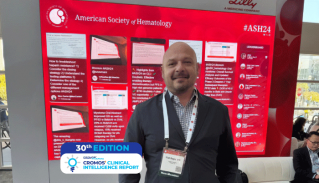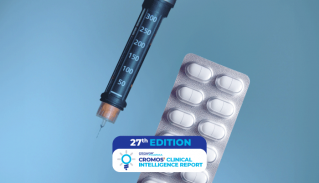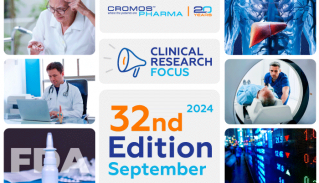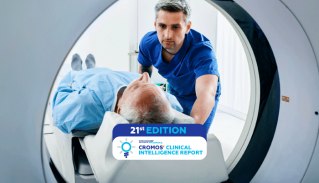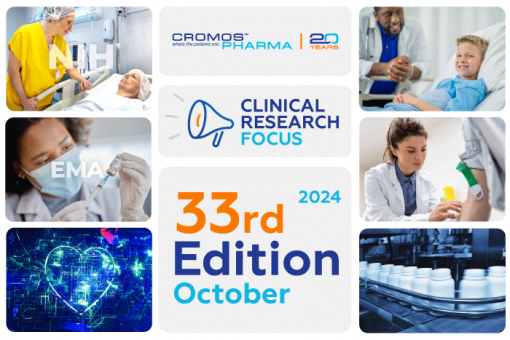
Clinical Research Focus. 33rd Edition
Exploring Portugal’s Clinical Trials Landscape
Portugal stands as a strategic choice for conducting clinical trials, offering a unique blend of opportunities for the global healthcare and pharmaceutical industries. With a population of over 10 million, Portugal boasts a high-quality healthcare system integrated with advanced research facilities and a well-educated medical community.
Please follow the link to learn more.
FDA Approves New Treatment for Niemann-Pick Disease, Type C
The FDA has approved Aqneursa (levacetylleucine) to treat neurological symptoms of Niemann-Pick disease type C (NPC) in patients aged 4 and older. This approval was based on a randomized, double-blind, placebo-controlled study that demonstrated the drug’s effectiveness in improving functional outcomes in patients with mild neurological symptoms of NPC.
Please follow the link to learn more.
7 Reasons to Choose Central and Eastern Europe as Your Go-To Destination for Clinical Trials
The global market for CROs is projected to grow from $52.19 billion in 2023 to approximately $68.92 billion by 2027. Yet, despite this growth, 80% of clinical trials experience delays, leading to significant financial losses. Central and Eastern Europe (CEE) offers a solution with its rapid enrollment capabilities, streamlined regulatory processes, and a large pool of treatment-naïve patients, making it an ideal region for rescuing clinical trials.
Please follow the link to learn more.
EMA Recommends Expanding Mpox Vaccine Use to Adolescents
The European Medicines Agency (EMA) has recommended extending the indication of the mpox and smallpox vaccine Imvanex to include adolescents aged 12 to 17. This decision is based on study results showing a similar immune response and safety profile in adolescents as seen in adults.
Please follow the link to learn more.
 New Study Raises Concerns Over Ozempic’s Potential Link to Suicidal Thoughts
New Study Raises Concerns Over Ozempic’s Potential Link to Suicidal Thoughts
A recent JAMA study suggests a possible link between Novo Nordisk’s popular diabetes and weight loss drug Ozempic (semaglutide) and an increased risk of suicidal ideation, especially among patients also taking antidepressants. As GLP-1 receptor agonists gain popularity, these findings highlight the importance of careful monitoring and patient safety.
Please follow the link to learn more.
Pfizer Withdraws Sickle Cell Drug Oxbryta from Global Markets
Pfizer has announced the voluntary global withdrawal of its sickle cell disease therapy, Oxbryta, citing new clinical data that shows the drug’s risks now outweigh its benefits. This decision, following the $5.4 billion acquisition of Global Blood Therapeutics in 2022, involves halting all distribution, recalling produced lots, and discontinuing ongoing clinical trials. Oxbryta, initially approved in 2019, was the first treatment targeting the root cause of sickle cell disease. Patients are advised to consult their physicians for alternative treatments.
Please follow the link to learn more.
How AI is Revolutionizing Heart Health: 7 Breakthroughs to Watch This World Heart Day
With World Heart Day on September 29th approaching, it’s crucial to acknowledge the global impact of cardiovascular diseases, which take nearly 17.9 million lives each year. This year, the focus is on seven groundbreaking AI-driven clinical trials that are reshaping heart health. These advancements include revolutionizing heart failure patient screening, predicting long-term heart attack risks, and accelerating the diagnosis and treatment of heart attacks, paving the way for more effective and timely cardiac care.
Please follow the link to learn more.
Triple Antibody Therapy Shows Promise in Controlling HIV-1 Without ART
A recent phase 1/2a study published in Nature Medicine highlights the potential of a triple combination of HIV-1 broadly neutralizing antibodies (bNAbs) to control the virus without antiretroviral therapy (ART). The study found that 83% of participants maintained virologic suppression during treatment, and 42% continued to suppress the virus for up to 44 weeks after stopping ART. This novel approach could pave the way for new HIV-1 treatment strategies.
Please follow the link to learn more.
Immunotherapy Post-Surgery Extends Cancer-Free Survival in High-Risk Bladder Cancer Patients
A large clinical trial led by NIH researchers has shown that pembrolizumab, an immunotherapy drug, significantly extends the cancer-free period for patients with high-risk, muscle-invasive bladder cancer after bladder removal surgery. Patients receiving pembrolizumab remained cancer-free for a median of 29.6 months, nearly double the 14.2 months observed in the control group. This finding offers a new treatment option for those who cannot undergo or have not benefited from traditional chemotherapy.
Please follow the link to learn more.
Biogen and UCB Achieve Success in Phase 3 Lupus Trial, Validating Risky Bet
Biogen and UCB have reported positive results in a phase 3 trial for dapirolizumab pegol, a treatment for systemic lupus erythematosus (SLE). Despite a previous trial failure in 2018, the current study met its primary endpoint, showing improvements in moderate to severe disease activity. Encouraged by these findings, the companies plan to move existing trial patients into a long-term study and initiate a second phase 3 trial later this year.
Please follow the link to learn more.




 New Study Raises Concerns Over Ozempic’s Potential Link to Suicidal Thoughts
New Study Raises Concerns Over Ozempic’s Potential Link to Suicidal Thoughts




